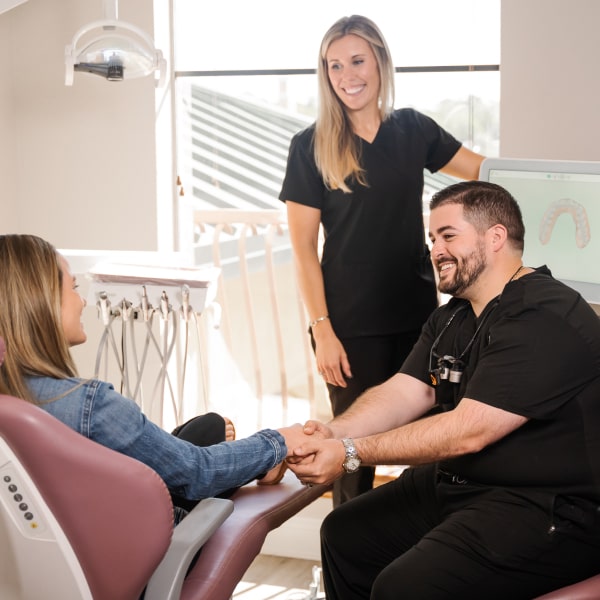Emergency Dentist: Immediate Care for Dental Issues

Introduction
Emergency dental care is crucial when it comes to addressing dental issues that require immediate attention. Dental emergencies can occur unexpectedly and can cause severe pain and discomfort. When faced with a dental emergency, it is important to have access to immediate care to alleviate pain, prevent further damage, and ensure the best possible outcome for your dental health. Understanding what constitutes a dental emergency, knowing the steps to take in these situations, and finding the right emergency dentist are all essential for prompt and effective treatment.
Understanding Dental Emergencies
Dental emergencies refer to situations where immediate dental care is required to address severe pain, uncontrolled bleeding, tooth loss, or any other dental issue that needs urgent attention. These emergencies can range from toothaches and abscesses to broken teeth and dental injuries.
In some cases, dental emergencies may be caused by underlying conditions such as gum disease or tooth decay. It is important to address these issues promptly to prevent further damage and potential complications.
While some dental emergencies can be managed by a regular dentist, others may require specialized treatment. For example, a tooth extraction may be necessary if a tooth is severely damaged or infected. In more severe cases, such as facial bone injuries, a visit to the emergency room may be necessary. Understanding the nature of dental emergencies and knowing when to seek immediate care is crucial for ensuring the best outcomes for your dental health.
Identifying a Dental Emergency: What Qualifies?
Identifying a dental emergency can sometimes be challenging. However, there are certain signs and symptoms that qualify as dental emergencies and require immediate attention. These include severe pain that is affecting your daily activities, uncontrolled bleeding from the mouth, tooth loss due to trauma or injury, and facial bone injuries.
If you are experiencing any of these symptoms, it is important to seek emergency dental care as soon as possible. Prompt treatment can help alleviate pain, prevent further damage, and ensure the best possible outcome for your dental health. Don’t hesitate to reach out to an emergency dentist if you are unsure whether your dental issue qualifies as an emergency. They will be able to assess your situation and provide the appropriate care and guidance.
Immediate Steps to Take in a Dental Emergency
When faced with a dental emergency, taking immediate steps can help alleviate pain and prevent further damage. Here are some essential steps to take in a dental emergency:
- Apply a cold compress to the affected area to reduce swelling and alleviate pain.
- If there is bleeding, use a clean cloth or gauze to apply gentle pressure to the area.
- Contact an emergency dentist or seek emergency dental care immediately for professional evaluation and treatment.
- Provide detailed information about your dental emergency, including the symptoms, when they started, and any relevant medical history.
These steps can provide temporary relief and ensure that you receive the immediate attention you need. It’s important to remember that dental emergencies should not be ignored or left untreated, as they can lead to further complications and affect your overall dental health.
Types of Dental Emergencies and How to Handle Them
Dental emergencies can manifest in various forms, and knowing how to handle different types of emergencies is crucial. Here are some common types of dental emergencies and how to handle them:
- Dental abscess: Seek immediate treatment for a dental abscess, which is a painful infection at the root of a tooth. Antibiotics and drainage may be necessary to address the infection.
- Broken tooth: If you have a broken tooth, gather any broken pieces and rinse your mouth with warm water. See an emergency dentist as soon as possible for proper treatment.
- Dental injuries: In case of dental injuries, such as a knocked-out tooth or a tooth that has been partially dislodged, seek immediate dental care. Try to preserve the tooth and keep it moist until you can see a dentist.
- Tooth decay: If tooth decay causes severe pain or a dental emergency, seek emergency dental care. Immediate treatment can help alleviate pain and prevent further damage to the affected tooth.
Common Dental Emergencies Explained
Common dental emergencies include issues like a dental crown coming loose, severe tooth pain, and gum disease. If a dental crown becomes loose or falls out, it is important to seek immediate dental care to avoid further damage to the tooth. Severe tooth pain can indicate an underlying issue that requires immediate attention, such as an infection or a dental abscess. Gum disease, if left untreated, can cause further damage to the gums and teeth, leading to more extensive treatment in the future. Seeking emergency dental care for these issues can help alleviate pain, prevent further damage, and ensure the best possible outcome for your dental health.
Temporary Solutions for Pain Relief Before You Reach the Dentist
While waiting to see an emergency dentist, there are temporary solutions you can try to alleviate pain and discomfort. These include:
- Over-the-counter pain relief medication, such as acetaminophen or ibuprofen, can help manage pain.
- Applying a cold compress to the affected area can help reduce swelling and provide temporary pain relief.
- Rinsing your mouth with warm water can help soothe irritated tissues.
- A saltwater rinse can help alleviate pain and reduce inflammation.
These temporary solutions can provide some relief until you can see a dentist for proper evaluation and treatment. However, it is important to remember that these are not long-term solutions and seeking professional dental care is essential for addressing the underlying issue.
Finding an Emergency Dentist
Finding an emergency dentist is crucial when faced with a dental emergency. Here are some tips to help you find immediate dental care services:
- Look for dental providers that offer emergency dental care services.
- Consider urgent care centers that have dental services available.
- Reach out to your regular dental provider to inquire about emergency care options.
- Research emergency dental care providers in your area and read reviews to ensure quality care.
By finding an emergency dentist who can provide immediate attention, you can ensure that your dental emergency is addressed promptly and effectively.
Tips for Finding Immediate Dental Care Services
When searching for immediate dental care services, there are a few tips to keep in mind:
- Check with your regular health care provider for recommendations on emergency dental care providers.
- Reach out to dental providers in your area and inquire about their emergency care services.
- Research online reviews and ratings of emergency dental care providers to ensure quality care.
- Consider asking for referrals from friends, family, or colleagues who have had positive experiences with emergency dental care.
By following these tips, you can find a trusted emergency dental care provider who can address your dental emergency promptly and effectively.
What to Consider When Choosing an Emergency Dentist
When choosing an emergency dentist, there are several factors to consider:
- Check if the emergency dentist accepts your dental insurance plan to ensure coverage for your emergency dental care.
- Evaluate the range of dental services offered by the emergency dentist to ensure they can address your specific dental emergency.
- Consider the availability of immediate attention from the emergency dentist, especially during after-hours or weekends.
- Prioritize a dentist who values your dental health and provides comprehensive care.
By considering these factors, you can choose an emergency dentist who can provide the immediate attention and quality care needed for your dental emergency.
Aftercare Following an Emergency Dental Procedure
After receiving emergency dental care, it is important to follow proper aftercare instructions to ensure proper healing and minimize discomfort. Each emergency dental procedure may have specific aftercare requirements, and it is important to follow your dentist’s instructions.
The healing process following an emergency dental procedure may involve managing discomfort and pain, maintaining good oral hygiene, and attending follow-up visits. Taking prescribed medications as directed and avoiding activities that may disrupt the healing process are also important for optimal recovery.
By following your dentist’s aftercare instructions, you can promote proper healing and minimize the risk of complications following an emergency dental procedure.
Tips for Post-Treatment Care at Home
Proper post-treatment care at home is essential for a successful recovery following an emergency dental procedure. Here are some tips to help you during this time:
- Pain management: Take any prescribed pain medications as directed by your dentist. Over-the-counter pain relievers can also help manage discomfort.
- Oral hygiene: Follow your dentist’s instructions for oral hygiene, such as gently brushing and flossing around the treated area.
- Activity restrictions: Avoid strenuous activities and follow any activity restrictions provided by your dentist to prevent complications and promote healing.
- Signs of infection: Be aware of any signs of infection, such as increased pain, swelling, or discharge from the treated area. Contact your dentist if you experience any of these symptoms.
By following these tips for post-treatment care at home, you can support the healing process and minimize the risk of complications after an emergency dental procedure.
Signs You Should Return to the Dentist After an Emergency Procedure
Following an emergency dental procedure, it is important to be aware of signs that indicate the need for further dental follow-up. If you experience persistent or worsening pain, abnormal bleeding, or symptoms of infection such as swelling, redness, or pus, it may indicate a complication or unresolved issue.
Additionally, if you have concerns about the healing process or any changes in your oral health, it is recommended to schedule a follow-up appointment with your dentist. Promptly addressing any issues or concerns after an emergency procedure can ensure proper treatment and prevent further complications.
Conclusion
In conclusion, immediate action during a dental emergency is crucial for preserving oral health. Understanding the types of emergencies, seeking temporary pain relief, and locating an emergency dentist are essential steps. Preparation, preventive measures, and aftercare play vital roles in managing dental emergencies effectively. Remember, timely care can prevent complications and maintain a healthy smile. Be proactive in your dental health to minimize the risk of unexpected emergencies and ensure regular check-ups for early intervention. Prioritize your dental well-being for a confident and pain-free smile. Contact us at Prestige Dental for more!


